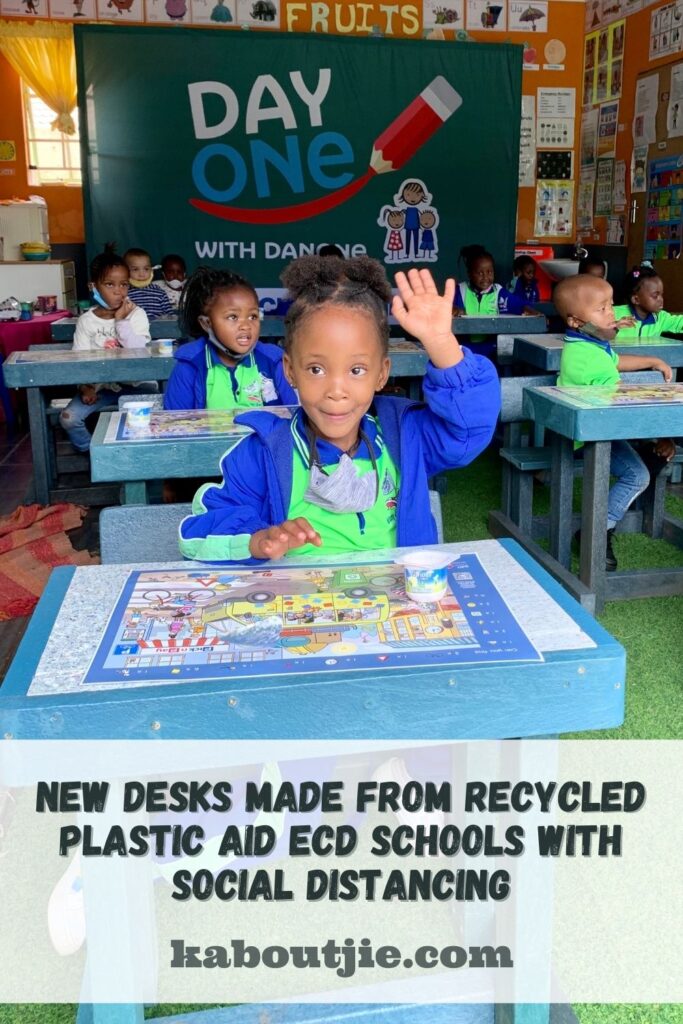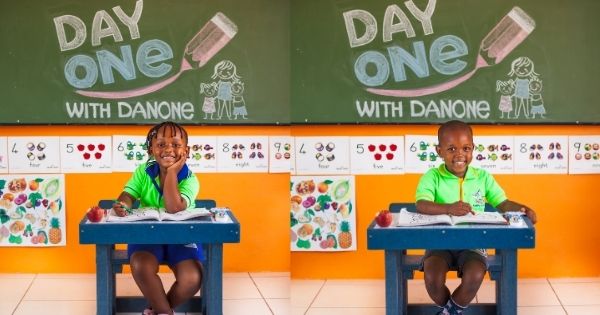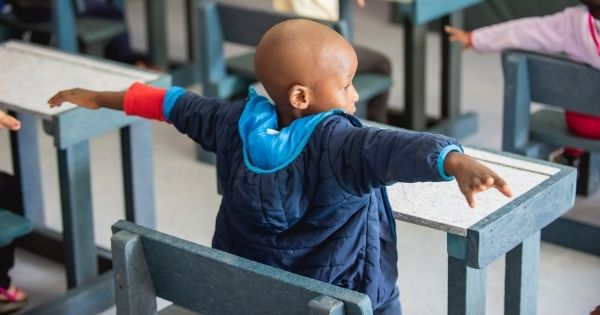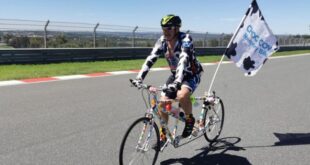Rewind to just one year ago and preschools were a babbling place of fun. Little ones learning how to engage and interact with each other freely while gaining the foundational skills that will inform their schooling career. Today, Early Childhood Development (ECD) centres are scuttling amidst all the Covid sanitation protocols, trying their best to provide a safe environment for children. And it has been a challenge.
ECD operators are largely NPOs and micro-social enterprises – mostly owned and run by communities. Many operate in a quasi-informal manner providing a service that is needs-based, especially in poor communities. These ECDs have limited resources and cash flow.
As the new school year begins, some centres have worked hard to be able to reopen their doors and meet COVID-compliant restrictions. However, many still lack the necessary educational resources and personal protective equipment.

“About 30 percent of ECD centres did not reopen after June 2020 due to their inability to comply adequately to COVID regulations and unfortunately, have remained closed,” says Leonard Saul, Chief Executive Officer SA Congress for ECD.
Parents usually rely on these centres, so that they can return to work and remain economically active and provide for their families. Now parents are panicking as to whether their children will be safe at these facilities. Many parents have prepared their child for what lies ahead – the handwashing, the temperature checking and the wearing of masks – but anxiety still prevails. A key question troubling parents is whether there will be adequate social distancing.
Traditionally, socialisation has been encouraged and – sometimes as a result of inadequate resources – many children have tended to huddle to work and play. But this behaviour, under the current conditions of the pandemic, is counterintuitive to their safety.
Danone has taken on the challenge to provide COVID-compliant desks to seven ECD schools, five of which are based in Ekurhuleni, the metropolitan in which its production facility is situated. What also makes these desks unique, is that they are made up of recycled yoghurt cups!

Caption: Atlehang and Siyabonga at their brand-new desks, which have been made up of recycled yoghurt cups. The project is part of Danone’s commitment to zero waste to landfill by 2030.
These desks will be distributed between 27 January and 15 February as part of Danone’s Day One campaign: focusing on the first day back to school. This is a milestone moment for many parents and children – and one that should be joyously celebrated, not marred by the fear around lack of adequate social distancing.
Converting waste into resources addresses a social need in two ways: the immediate one is that of providing much-needed desks to help adequately space out children and secondly, it helps Danone fulfil its commitment of no waste to landfill by 2030. Through this one initiative this year, the yoghurt manufacturer will transform 19 tons of waste into school desks.
“The equivalent of 914 of the Nutriday 1kg tubs go into making the desk frame and 245 of the yoghurt six-packs go into the top, to make this beautiful strong, durable desk,” says Henk van der Hyde, Danone’s Sustainability Manager.
The desks are designed under the supervision of an occupational therapist for children aged four to six and are not only a safe place to learn how to read and write, but to eat as well. In terms of the social distancing guidelines published by Department of Social Development in June 2020, these seven ECD centres can now ensure that their young learners are kept at least one metre apart.
“It’s a natural fit to provide aid to our little Nutriday Junior consumers and to provide this assistance in the community that we serve,” says Kid Nkantsu, Operations Director of Danone South Africa. Nutriday Junior yoghurt offers a source of iron, zinc, vitamins A, B, D and E for developing a strong mind and supporting immunity.
Leading the way in making sustainable changes for the future, Danone was the first yoghurt manufacturer to sign the SA Plastics Pact more than a year before the Waste Management Act was put into effect just two months ago, in November 2020. The Act puts pressure on all South African producers to implement more sustainable measures.
“We are proving that plastic is not waste. It’s got value and can be made into anything,” says van der Hyde.
Throughout the year, Danone has committed to recycling and donating a further 270 of these desks to additional ECD schools around Gauteng. This campaign is a fantastic example of innovation in the sustainable space as it not only implements recycling and upcycling practices, reducing waste, but provides much-need resources to children and facilities in need.
“We hope that our commitment will encourage others in the industry to make collective progress towards ensuring that all plastic packaging is fully recyclable and recycled,” added van der Hyde. The Day One campaign is a kickstart to a broader movement in which more partners contribute to the initiative.
“Consumers are craving change,” says Nkantsu. “They expect large organisations like Danone to change the world for the better.” And that is what Danone is doing.
 Kaboutjie SA Mommy Blogs by Lynne Huysamen
Kaboutjie SA Mommy Blogs by Lynne Huysamen





Brilliant initiative Danone. We should all strive for zero waste landfill by 2030. Most of the people in this country don’t even know how to/what to or even where to send recycling.
So true Stacey! Thankfully we now have a recycling removal service here – each week they come and collect which is fantastic.